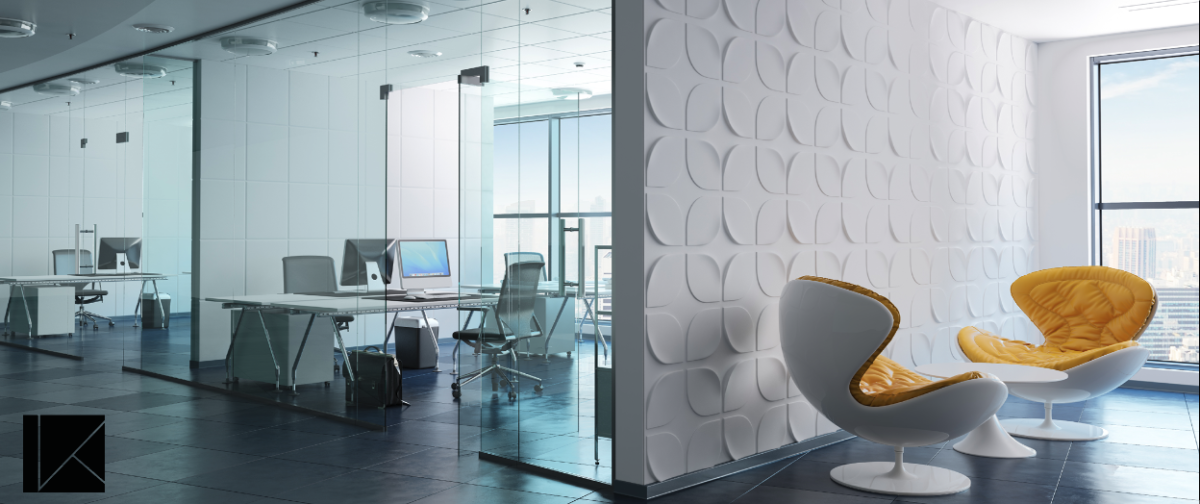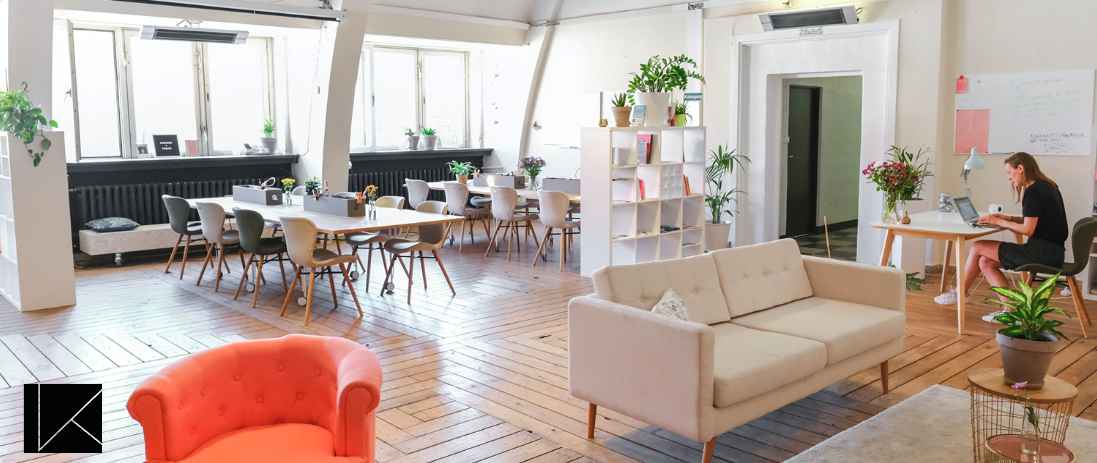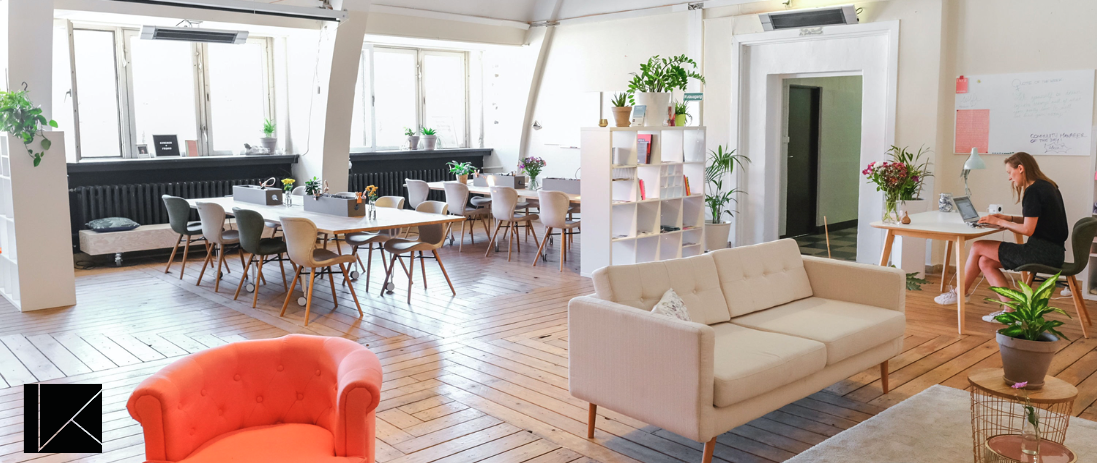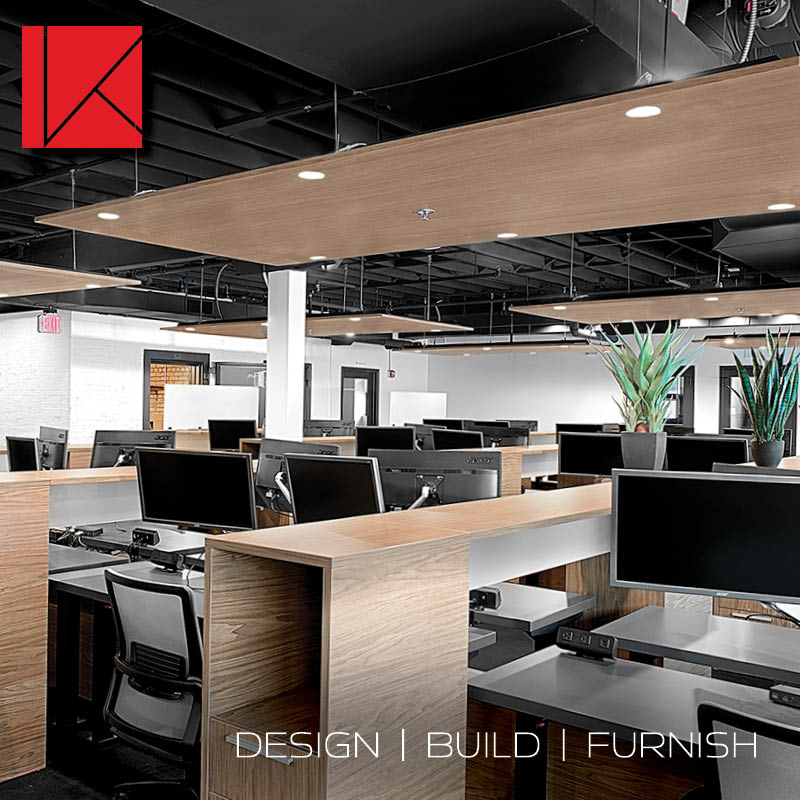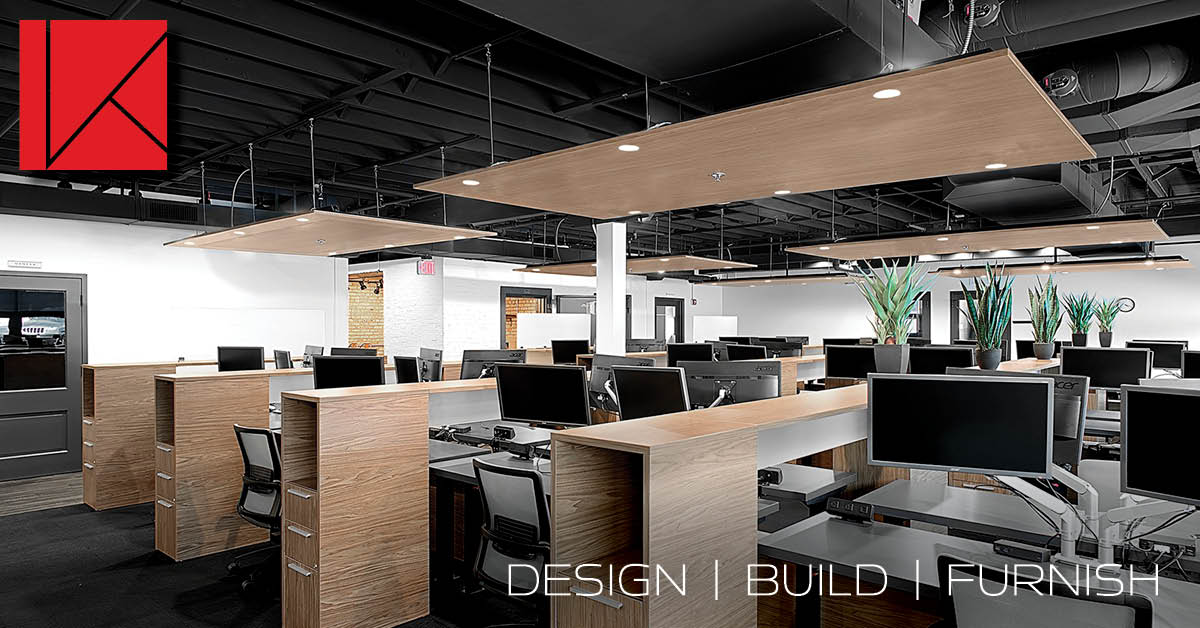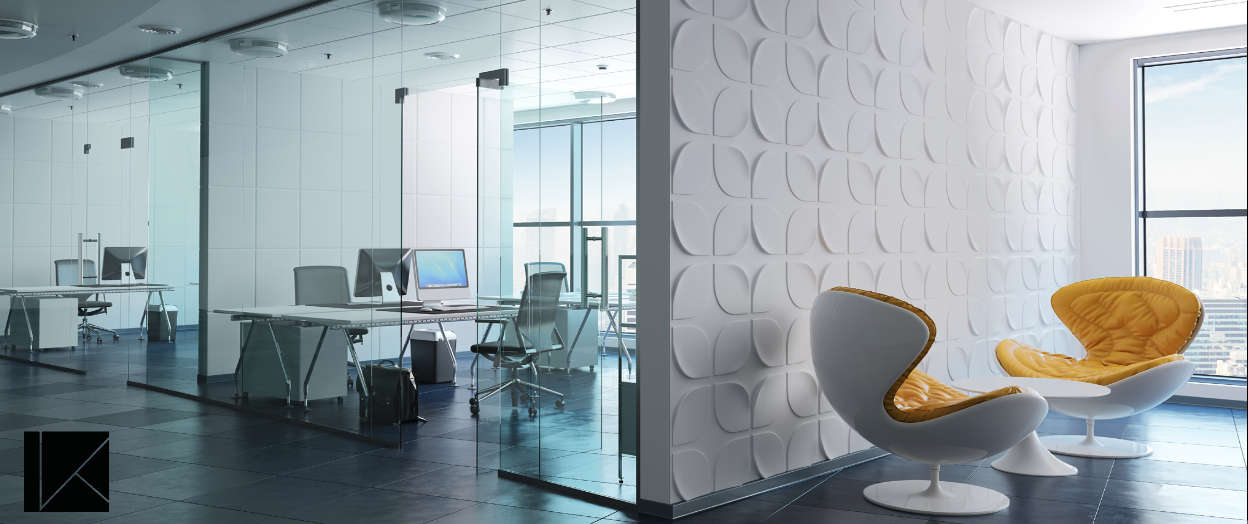
Wall cladding is a type of decorative feature used to cover the face of a wall. It involves the application of one type of material over another and, in most instances, does not provide any functional benefit other than sometimes delivering insulating and/or protective effects (especially when installed on exterior structures). When installed on interior walls, wall cladding basically serves as an artistic focal point, concealing and/or embellishing the surface of a wall in some way. Here’s what you need to know about using wall cladding in modern offices:
Types of Wall Cladding
Wall cladding can be made of various — and numerous — types of materials, from wood, stone and other organic elements to composite and/or manmade substances like plastic, concrete and certain fabrics, ceramics and more. The type of material(s) best suited for modern commercial or home office use is really just a matter of taste, but should be chosen based on the following considerations:
Function. As mentioned, most interior wall cladding is primarily decorative in purpose. It is meant to add interest and energy to a space. Sometimes, however, offices might need to insulate themselves from temperature and/or noise disturbances. Determining the purpose of using wall cladding as part of your design will enable you to pick the right material for its creation.
Location. Theoretically, wall cladding could cover every wall in your office. We don’t recommend that approach since it obviously takes away the intrinsic “wow” factor of having it only in a select one or two areas. Instead, we suggest picking an existing wall in a high traffic area where the wall cladding can be showcased and/or where it contributes to a specific purpose (such as offering sound insulation or protection from the constant movement of passersby).
Style. You also want to maintain the style of the office as a whole, picking a wall cladding that complements the surrounding decor and doesn’t distract from it. If your office has an industrial aesthetic with lots of clean lines, glass and metal, you might not want to add pastel wall cladding into the mix. Similarly, you probably don’t want to use plastic wall cladding in an office centered around a biophilic theme.
Budget. Of course, most people need to think about the expenses associated with adding wall cladding to their office design plan. The range of materials available means wall cladding can run the gamut in cost. Furthermore, while relatively easy to install, wall cladding can be difficult to remove, causing damage to the wall that a cheap paint job can’t resolve. Consider your budget and pick the wall cladding material that matches it.
Maintenance and Durability. Finally, the best wall cladding is durable and easy to maintain, lasting for as long as you need it so that you don’t have to waste unnecessary time or money for its upkeep. This doesn’t mean you have to spend alot; plastic wall cladding, for instance, can be very affordable with the added benefit of being highly durable and easy to clean!
Ready to Learn More?
Picking the best wall cladding for your modern office design doesn’t have to be difficult. While the sheer number of options available might seem overwhelming, an experienced design firm can help you weigh the pros and cons of each and settle on the wall cladding design that matches your needs, as well as your budget. Please contact our team of designers at Key Interiors to learn more.


